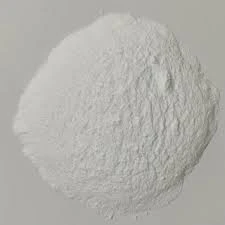Well Treatment Chemicals Enhancing Oil and Gas Production
The oil and gas industry plays a crucial role in fueling the global economy, and maintaining the efficiency of wells is vital for maximizing production. One of the key strategies for ensuring optimal well performance is the use of well treatment chemicals. These chemicals are designed to address a variety of issues that can impede the flow of oil and gas, ultimately enhancing recovery rates and extending the life of the reservoir.
What Are Well Treatment Chemicals?
Well treatment chemicals are specialized formulations used to optimize the production of hydrocarbons from drilling wells. They serve multiple purposes, including cleaning, enhancing flow, and stimulating reservoir performance. The use of these chemicals can be the difference between a well that produces efficiently and one that underperforms due to various complications such as formation damage, scale buildup, or reservoir souring.
Types of Well Treatment Chemicals
1. Acids Acid treatments are among the most common methods used to enhance well productivity. Hydrochloric acid (HCl) is often utilized to dissolve limestone and other carbonate formations, improving permeability and allowing for better fluid flow. Acidizing not only cleans the wellbore but also helps to stimulate the surrounding formation, leading to increased production rates.
2. Surfactants Surfactants are chemicals that reduce the surface tension between liquids, allowing for the easier movement of fluids in the reservoir. They can be particularly effective in enhancing oil recovery from water-wet reservoirs. By altering the wettability of the rock, surfactants help mobilize trapped oil, increasing recovery efficiency.
3. Biocides In many reservoirs, bacterial growth can lead to the production of sour gas (hydrogen sulfide) and other undesired byproducts. Biocides are chemicals used to control microbial growth, thereby preventing souring and maintaining well integrity. Effective biocide use can prolong the life of a well and protect valuable equipment from corrosion and other damage.
4. Scale Inhibitors Scale deposits can severely restrict the flow of oil and gas in pipelines and wellbores, leading to significant production losses. Scale inhibitors are designed to prevent the formation of scale deposits, ensuring consistent fluid flow and reducing maintenance costs associated with scale remediation.
well treatment chemicals

5. Corrosion Inhibitors The presence of corrosive substances in the produced fluids can damage both the well and the equipment involved in production. Corrosion inhibitors protect metal surfaces from degradation, extending the lifespan of pipelines and other infrastructure.
Benefits of Using Well Treatment Chemicals
The strategic application of well treatment chemicals offers a range of benefits. By improving flow rates and production efficiency, these chemicals can significantly increase the overall output of a well. As a result, production costs can be lowered, and the return on investment for oil and gas operations can be enhanced. Additionally, well treatment chemicals can lead to a more environmentally sustainable operation by reducing the need for extensive drilling and exploration activities.
Moreover, these chemicals can provide solutions tailored to specific well conditions. Advanced formulations can be designed based on reservoir characteristics, ensuring targeted interventions that maximize effectiveness. This customization not only improves efficiency but also minimizes the risks associated with chemical treatments.
Challenges and Considerations
While the benefits of well treatment chemicals are substantial, there are challenges associated with their use. For example, the potential environmental impacts of certain chemicals must be carefully considered, as uncontrolled use can lead to contamination of groundwater or other ecological issues. Therefore, it is essential to follow stringent regulations and best practices when using these chemicals.
Furthermore, understanding the interactions between different well treatment chemicals and the reservoir environment is critical to achieving the desired outcomes. This requires comprehensive testing and monitoring to ensure optimal performance without damaging the well or reservoir integrity.
Conclusion
Well treatment chemicals are indispensable tools in the oil and gas industry, playing a crucial role in enhancing production and managing reservoir health. With diverse applications ranging from acidizing to preventing corrosion, these chemicals offer solutions that can significantly impact the success of oil and gas operations. As technology evolves, the development of more effective and environmentally-friendly treatment chemicals will likely continue, paving the way for sustainable and efficient energy production in the future. By employing these advanced chemical treatments, operators can ensure that their wells remain productive and economically viable for years to come.

